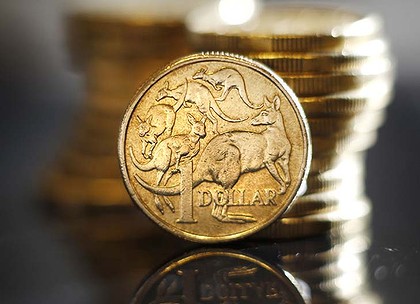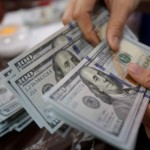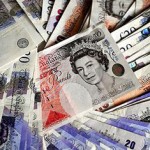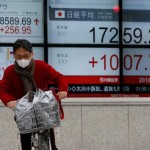Commodity currencies feel heat; dollar, yen, euro stable

Commodity currencies nursed hefty losses on Friday, as investors sent the Australian dollar to 5 1/2 year lows as they bet on the Australian central bank reducing interest rates when it meets next week.
While currencies from energy and resource producing countries, such as Canada and Australia, struggled under the weight of falling energy prices, the dollar, yen and euro were locked in familiar ranges.
The Aussie dollar barely made any recovery on Friday, after dropping nearly 2 percent to $0.7720 AUD=D4 on Thursday, a low unseen since July 2009.
The Aussie dollar last traded at $0.7775, up 0.2 percent on the day but was still down 4.7 percent this month and was on course to post the third straight months of losses.
“The AUD’s fall over the past 24 hours has been nothing short of stunning,” said Raiko Shareef, currency strategist at Bank of New Zealand.
“The weight of expectation around next week’s RBA meeting continues to mount,” he said, adding a warning that, “a nasty snapback beckons should the RBA fail to adjust its language toward an easing bias.”
Debt futures now imply a near 70 percent chance the Reserve Bank of Australia (RBA) will cut its 2.5 percent cash rate at its policy meeting on Tuesday, Feb. 3, up from less than 10 percent earlier this week.
The decisive move came as the Reserve Bank of New Zealand surprised investors on Thursday by opening the door to a possible rate cut, following last week’s unexpected decision by the Bank of Canada to ease.
The Canadian and New Zealand currencies have both been in the firing line as a consequence.
The greenback hit a near six-year high on the Canadian dollar at C$1.2678 CAD=D4, while the New Zealand dollar slid to a four-year trough of $0.7235 NZD=D4.
Falling energy prices are darkening the outlook of energy and resource producing countries, such as Canada and Australia.
Another notable underperformer was the Swiss franc, which eased broadly on renewed speculation of intervention by the Swiss National Bank.
The euro climbed as far as 1.0464 francs EURCHF=, reaching its highest since the Swiss National Bank abandoned its 1.20 per euro cap two weeks ago. It last traded at 1.0450.
The G3 currencies were far more sedate by comparison with the embattled euro firming slightly as it consolidated steep losses that knocked it to an 11-year low against the greenback first thing this week.
The common currency held firm at $1.1323 EUR=, pulling away from the trough of $1.1098. But it is still down more than six percent so far this month.
Against the yen, it drifted to 133.60 EURJPY=R, away from a 16-month low of 130.16 set Monday.
Later in the day, euro zone inflation could come in softer than expected after German consumer prices fell in January for the first time since the height of the global financial crisis in 2009.
Such an outcome is sure to vindicate the European Central Bank’s decision last week to launch a 1 trillion euro government bond-buying programme ECONEZ.
The yen showed little reaction to a barrage of mixed Japanese economic data. Industrial output increased more than expected in December but inflation slowed slightly more than expected. [ECONJP]
The dollar fetched 118.00 yen JPY=, down 0.2 percent on the day but rebounding from Thursday’s low of 117.25.
While the currency pair has been in a narrow trading range around 118 yen for the ninth day, Minori Uchida, chief FX strategist at the Bank of Tokyo-Mitsubishi UFJ, says downside risk looks a bit bigger than upside ones.
“Economic data out of the U.S. fell short of market expectations in January. If that continues into February, then the market will start to think that the dollar’s strength is hurting growth,” said Minori Uchida, chief FX strategist at the Bank of Tokyo-Mitsubishi UFJ.
The next key data for the dollar is an advance reading on U.S. GDP due later in the day, which economists think will show a solid growth of 3.0 percent in the October-December quarter.
Source: Reuters – Commodity currencies feel heat; dollar, yen, euro stable





























